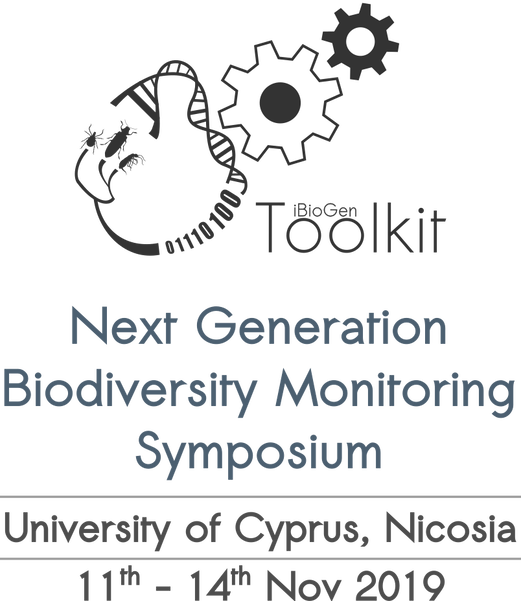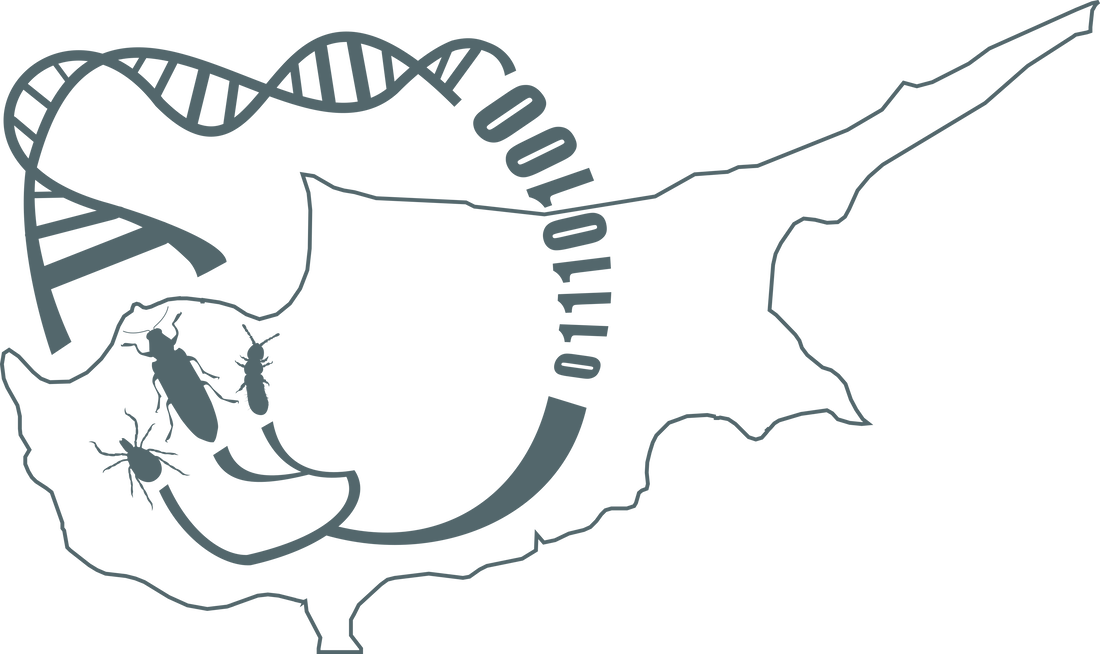Next Generation Biodiversity Monitoring Symposium
(University of Cyprus, Nicosia, 11th-14th of November 2019)
SYMPOSIUM TITLE
Genomic-based biodiversity measurement:
toward a unified protocol for global monitoring
Genomic-based biodiversity measurement:
toward a unified protocol for global monitoring
This symposium will bring together expertise that spans challenging taxonomic groups and novel genomic-based approaches for biodiversity measurement. The focus of the symposium will be the design of a modular-based protocol package covering sample design, sample collection, and sample processing (including the wet-lab sample handling and molecular pipelines) across relevant different environments and taxonomic groups. The following questions regarding the implementation of Genomic Observatories (GOs) will be addressed:
- What are the arguments for long-term biomonitoring to be an integral core function of GOs for global monitoring of temporal biodiversity trends?
- What fundamental data should come from a GO and which are the best molecular tools-protocols needed to provide these data?
- How should the core module of biodiversity sampling-protocols be defined to provide self-sufficiency of each GO to get results on local biodiversity trends while maximising the comparability of data across GOs?
- What synergies can be achieved by the ‘site-based’ sampling across GOs for the study of regional/global patterns?
INVITED SPEAKERS

Dr. Carmelo Andújar
IPNA-CSIC, Spain
The study of soil arthropod biodiversity using COI metabarcoding
IPNA-CSIC, Spain
The study of soil arthropod biodiversity using COI metabarcoding

Prof. Douglas Yu
University of East Anglia, UK
Shallow and wide sampling instead of narrow and deep: the CEOBE approach
University of East Anglia, UK
Shallow and wide sampling instead of narrow and deep: the CEOBE approach

Dr. Éric Coissac
University Grenoble-Alpes, France
Genome skimming, a solution for establishing a marker-independent reference database
University Grenoble-Alpes, France
Genome skimming, a solution for establishing a marker-independent reference database

Prof. Florian Leese
University of Duisburg-Essen, Germany
DNA-based aquatic biomonitoring - where are we, what's next? A perspective derived from DNAqua-Net COST Action
University of Duisburg-Essen, Germany
DNA-based aquatic biomonitoring - where are we, what's next? A perspective derived from DNAqua-Net COST Action

Prof. Francesco Ficetola
Università degli Studi di Milano, Italy
Environmental DNA for the monitoring of community dynamics and ecosystem functioning after the retreat of glaciers
Università degli Studi di Milano, Italy
Environmental DNA for the monitoring of community dynamics and ecosystem functioning after the retreat of glaciers

Prof. Fredrik Ronquist
Swedish Museum of Natural History
Insect Biodiversity Inventorying in Sweden
Swedish Museum of Natural History
Insect Biodiversity Inventorying in Sweden

Dr. Henrik Krehenwinkel
Trier University, Germany
Exploring arthropod community assembly in time and space by metabarcoding along the Hawaiian Island chronosequence
Trier University, Germany
Exploring arthropod community assembly in time and space by metabarcoding along the Hawaiian Island chronosequence

Dr. Jeremy deWaard
iBOL, University of Guelph, Canada
Malaise traps, DNA barcodes, and genomic observatories
iBOL, University of Guelph, Canada
Malaise traps, DNA barcodes, and genomic observatories

Dr. Kristine Bohmann
University of Copenhagen, Denmark
Molecular biodiversity assessment of environmental and community samples using metabarcoding and comprehensive DNA reference databases
University of Copenhagen, Denmark
Molecular biodiversity assessment of environmental and community samples using metabarcoding and comprehensive DNA reference databases

Dr. Lucie Zinger
Institut de Biologie de l'ENS, France
DNA metabarcoding and trans-kingdom biodiversity assessments: current state and prospects
Institut de Biologie de l'ENS, France
DNA metabarcoding and trans-kingdom biodiversity assessments: current state and prospects

Dr. Marta Goberna
Spanish National Institute for Agronomic Research
Exploring phylogenetic and functional diversity of terrestrial prokaryotes
Spanish National Institute for Agronomic Research
Exploring phylogenetic and functional diversity of terrestrial prokaryotes

Prof. Martin Bidartondo
Imperial College London & Kew Gardens, UK
Large-scale mycorrhizal assessment
Imperial College London & Kew Gardens, UK
Large-scale mycorrhizal assessment

Prof. Vojtech Novotny
Czech Academy of Science, Czech Republic
Biodiversity sampling at Genomic Observatories: a field ecologist's perspective
Czech Academy of Science, Czech Republic
Biodiversity sampling at Genomic Observatories: a field ecologist's perspective

Prof. Simon Creer
Bangor University, UK
Advancing biodiversity knowledge using community and environmental DNA from diverse biomes
Bangor University, UK
Advancing biodiversity knowledge using community and environmental DNA from diverse biomes



